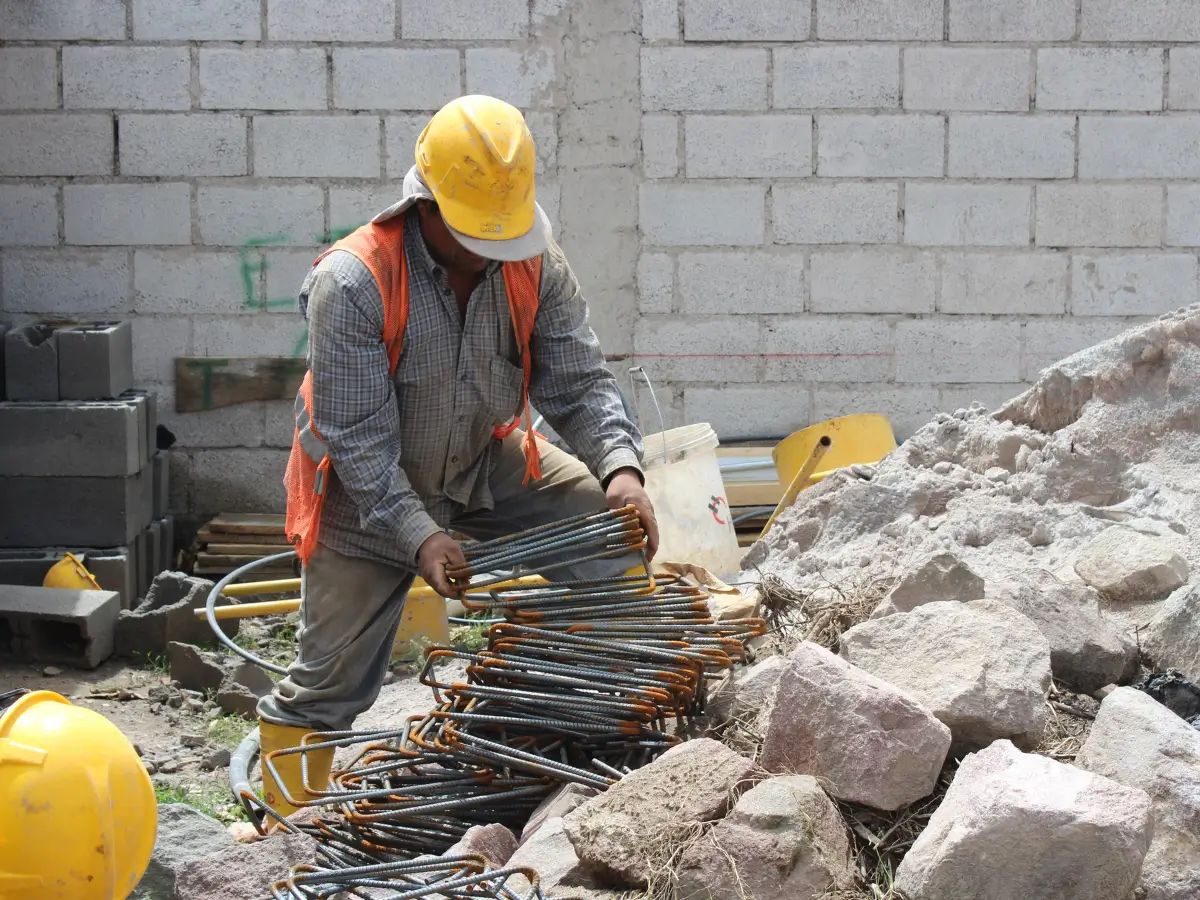How to Reuse and Recycle Construction Materials

Have you ever thought about recycling building materials in your home? Learn more about how and when to do so.
When we talk about recycling, most of us think about putting our plastic containers and aluminum cans in the blue bin. But have you ever thought about recycling building materials in your home?If you're in the market for a major renovation or construction project, there are significant opportunities to reduce, reuse, and recycle, which helps keep building materials out of the landfill and reduce your building costs at the same time.
Where and how can I recycle building materials?
1. Getting started
If you are planning a demolition or building project, the best places to go for information are:
- Your local Builders' Association
- Your state or provincial environmental agency
These organizations can help you determine best practices for your region, plan your project and help you ensure your project adheres to government regulations.
2. Local landfill and recycling regulations
Some municipalities do not accept residential construction materials, so make sure you understand proper processing and landfill rules in your area before you start. To learn what your city will remove and accept at landfill and how to prepare materials for recycling, contact:
- Your local municipality's solid waste and recycling department
- Your local waste/recycling haulers
3. Places to buy or sell reusable construction materials
- Habitat for Humanity ReStores in Canada, the US, New Zealand or Australia
- Search online for local construction recycling depots. Some search suggestions include:
- building material recycling
- recovered building materials for sale
- building reclaimers
- buy used building materials
Why Does recycling building materials matter?
If you think about the sheer volume of material used throughout the building process, recycling building components makes logical sense. Reusing materials:
- Reduces the demand for new resources
- Cuts costs related to the production and transportation of new materials and
- Eliminates the need to send waste to landfill sites
On the demolition side, every time you process hazardous waste properly, you keep it out of the landfill and minimize toxic build-up in our environment. Substances such as asbestos, latex paint, chemical solvents, adhesives, lead-based paint need to be treated with care to reduce their impact on the environment. Granted, it takes more time and care to dismantle and preserve reusable parts, but the resale price alone will make it worth your while.
What happens to recycled construction materials?
Many common construction and renovation materials can be reused or recycled. For example:
- Concrete: can be broken down and recycled as base course for building driveways and footpaths
- Untreated timber: is used as firewood or mulched. Large pieces can be re-milled and put back to use in construction
- Asphalt paving: is crushed and recycled back into new asphalt for paved roads
- Trees and brush: are recycled as compost or mulch
- Timber, large dimension lumber (i.e. lumber longer than 6 ft), plywood, flooring, and molding can be reused directly
- Metals (i.e. steel, aluminum, copper): can be melted down and reformed into new metal products. They can also be sold for scrap
Using the What Goes Where? search tool
For city-specific information about recycling building materials, visit the Recycle Coach homepage and type in the city or municipality that you live in. If your municipality is signed up, you will be able to use the What goes where?search tool to find out exactly where you can drop off these materials in your community. If your municipality is not signed up, be sure to register for updates that will let you know when the tool becomes available for your area.
You might also like...
How to Reuse and Recycle Construction Materials

Have you ever thought about recycling building materials in your home? Learn more about how and when to do so.
When we talk about recycling, most of us think about putting our plastic containers and aluminum cans in the blue bin. But have you ever thought about recycling building materials in your home?If you're in the market for a major renovation or construction project, there are significant opportunities to reduce, reuse, and recycle, which helps keep building materials out of the landfill and reduce your building costs at the same time.
Where and how can I recycle building materials?
1. Getting started
If you are planning a demolition or building project, the best places to go for information are:
- Your local Builders' Association
- Your state or provincial environmental agency
These organizations can help you determine best practices for your region, plan your project and help you ensure your project adheres to government regulations.
2. Local landfill and recycling regulations
Some municipalities do not accept residential construction materials, so make sure you understand proper processing and landfill rules in your area before you start. To learn what your city will remove and accept at landfill and how to prepare materials for recycling, contact:
- Your local municipality's solid waste and recycling department
- Your local waste/recycling haulers
3. Places to buy or sell reusable construction materials
- Habitat for Humanity ReStores in Canada, the US, New Zealand or Australia
- Search online for local construction recycling depots. Some search suggestions include:
- building material recycling
- recovered building materials for sale
- building reclaimers
- buy used building materials
Why Does recycling building materials matter?
If you think about the sheer volume of material used throughout the building process, recycling building components makes logical sense. Reusing materials:
- Reduces the demand for new resources
- Cuts costs related to the production and transportation of new materials and
- Eliminates the need to send waste to landfill sites
On the demolition side, every time you process hazardous waste properly, you keep it out of the landfill and minimize toxic build-up in our environment. Substances such as asbestos, latex paint, chemical solvents, adhesives, lead-based paint need to be treated with care to reduce their impact on the environment. Granted, it takes more time and care to dismantle and preserve reusable parts, but the resale price alone will make it worth your while.
What happens to recycled construction materials?
Many common construction and renovation materials can be reused or recycled. For example:
- Concrete: can be broken down and recycled as base course for building driveways and footpaths
- Untreated timber: is used as firewood or mulched. Large pieces can be re-milled and put back to use in construction
- Asphalt paving: is crushed and recycled back into new asphalt for paved roads
- Trees and brush: are recycled as compost or mulch
- Timber, large dimension lumber (i.e. lumber longer than 6 ft), plywood, flooring, and molding can be reused directly
- Metals (i.e. steel, aluminum, copper): can be melted down and reformed into new metal products. They can also be sold for scrap
Using the What Goes Where? search tool
For city-specific information about recycling building materials, visit the Recycle Coach homepage and type in the city or municipality that you live in. If your municipality is signed up, you will be able to use the What goes where?search tool to find out exactly where you can drop off these materials in your community. If your municipality is not signed up, be sure to register for updates that will let you know when the tool becomes available for your area.
You might also like...
Let's work together
We’re a proud partner to 1,700+ municipalities across North America and beyond. From local problems to larger initiatives, we’d love to have a conversation. Send us a note and we’ll be in touch as soon as possible.
